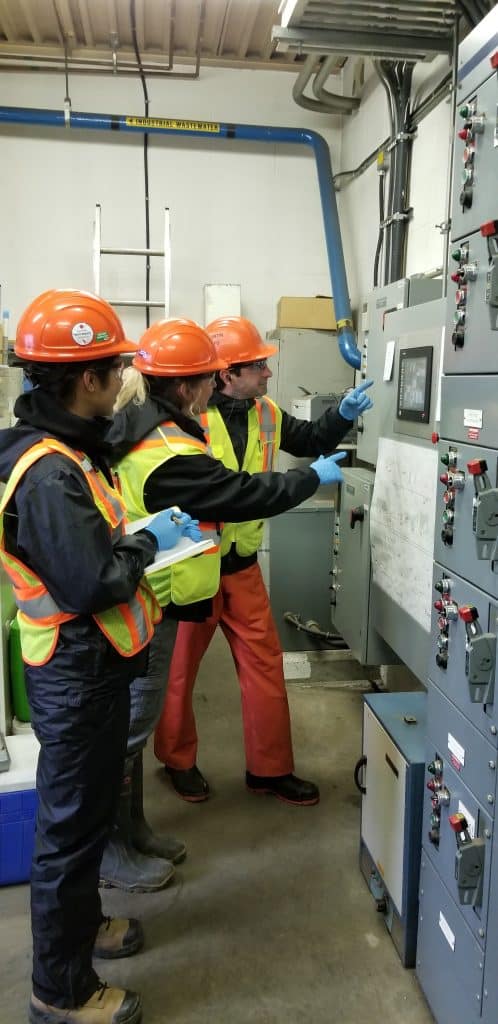by Francisco A. Perelló, P.Eng.
The Role of Engineering in the World of Industry 4.0
As part of National Engineering Month, on March 5, 2019, I attended the UBC Student and Industry Night which was an excellent opportunity to socialize, share knowledge and career stories with dozens of amazing colleagues and up-and-coming engineers. Jointly organized by Engineers & Geoscientists BC (EGBC) and the Engineering Faculty of the University of British Columbia (UBC), the event allowed me to hear about companies exploring new boundaries and some of the challenges facing students and experienced practitioners. Students in their first and second year of university are struggling with increasing course loads while those near the end of their program are looking into the market place to find opportunities to put their knowledge in to practice or deciding whether to pursue further education. On the other side of the spectrum I spoke with industry representatives and heard their concerns with increasing competition and the need for new talent to support their business growth.
 During the event I benefited from insightful conversations with students as they seek guidance on how to be more creative, how to improve their communication skills, and how to be open to possibilities in the world of Industry 4.0. Today’s industrial development aims to “interlink everything with everything else” via the Internet of things, cloud computing, robotics, artificial intelligence, cognitive computing and automation, creating “smart” factories, homes, businesses, appliances and gadgets. Long gone are the days when FORTRAN was a big innovation, acid rain was a mystery and only paper documents were acceptable.
During the event I benefited from insightful conversations with students as they seek guidance on how to be more creative, how to improve their communication skills, and how to be open to possibilities in the world of Industry 4.0. Today’s industrial development aims to “interlink everything with everything else” via the Internet of things, cloud computing, robotics, artificial intelligence, cognitive computing and automation, creating “smart” factories, homes, businesses, appliances and gadgets. Long gone are the days when FORTRAN was a big innovation, acid rain was a mystery and only paper documents were acceptable.
As the speed of change is increasing exponentially, it forces engineering students and professionals to ask whether our profession is still relevant and how to function in the modern world? It is reassuring to know that undergraduate engineering degrees continue to increase by 6% and 8% per year in Canada and the US, respectively, female students represent the larger percentage of Master’s and Doctoral programs in the US and the proportion of women in undergraduate programs in Canada is reaching new records. The unfortunate statistic is that indigenous peoples are sadly still underrepresented in engineering programs, which should be a concern and a priority to all.
Technical advancement has proven to be the outcome of research, development, testing, modelling, prototyping, manufacturing and commercialization of new designs, new products or new structures; all of which involve application of the principles of science and mathematics to develop sustainable solutions to technical problems. For a product or service to succeed, even in the era of Industry 4.0, it requires that those involved have an understanding of the linkages between science, societal and consumer needs, protection of the safety, health and welfare of the public and the preservation of natural ecosystems. And isn’t that the definition of an Engineer?
